If there is anyone who still thinks that the Confederate flag should still wave or military leaders from that traitorous period should adorn our military bases, Antebellum will change your mind. If it doesn’t, then you just need to get out of the way because a revolution is coming, and history will judge you harshly if you are not on the side of right.
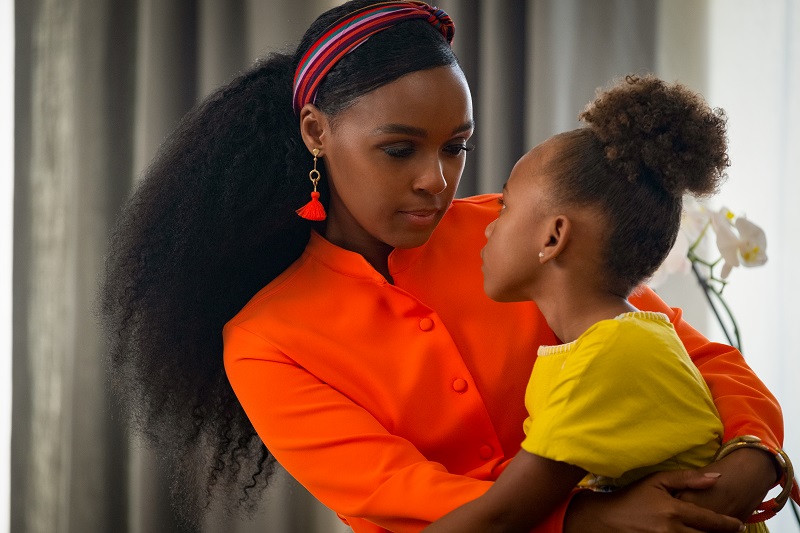
This is one of those movies where the less you know about it, the better. So, this review will be about as elusive and barebones, story-wise, as is humanly possible. What you need to know is that it involves the Civil War and its repercussions that, sadly, still reverberate today. The film also chronicles the wisdom of the study of African-American oppression and the systematic racism that still engulfs our republic, to its utter detriment.
Antebellum is mesmerizing and captivates from its first moments and is one of those films that will stick to you indefinitely as its power pulsates through your veins. The movie also has the potential, one can hope, to change the hearts and minds of folks who still do not see why we need a group like Black Lives Matter.
But I’m getting ahead of myself…
Janelle Monáe is already one of the most compelling actresses of her generation, something achieved in an astonishingly short period of time. Wide audiences first discovered her innate gifts in 2016 as part of the titanic trio that anchored the true tale Hidden Figures. The Kansas City native is also a prolific singer-songwriter (she opened the 2020 Academy Awards with a sizzling performance of her hit single Come Alive with the lyrics altered to fit the past year’s films). She was also a part of the electric ensemble of Moonlight (speaking of Oscars) and portrayed Marie Buchanon in Harriet.
What she achieves in Antebellum is a marvel on a myriad of levels. What Monáe achieves in the first act, given the outcome of the final act, is an astonishing achievement. She delivers a masterclass in being anchored in the moment you are portraying when performing, even while it seems the world around you has turned upside down. Her character is central to everything that occurs throughout the film and carries the narrative on her shoulders. Often times, an actor or actress can deliver what is needed of their part, all without considering the ripples that can reverberate from that performance. It emerges by every little thing—from the manner in which they carry themselves to their cadence, self-identity at any given time, and even something as simple as a longing gaze. Those are all potential giveaways or reveals that can tip the viewer to something that is underlying. They can be used as part of a performance, or as Monáe employs in her latest film, the lack of them speaks volumes.
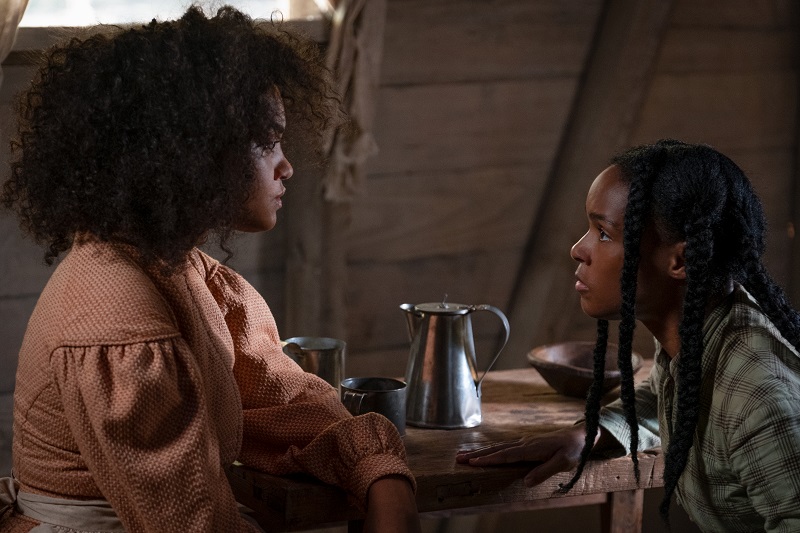
This is the film role that those of us who have appreciated the young actress from the get-go, have been waiting for her to score to aid the wider public to discover their new favorite thespian.
The entire cast is sublime, led by Monáe of course, but Jena Malone, Gabourey Sidibe, Kiersey Clemons, and Jack Huston do their part to bring this important, timely, and terrific film to life. Each makes the film approachable when it could easily have been anything but.
Writer-directors Gerard Bush and Christopher Renz have crafted the most original of premises. Let’s just say the film is like Get Out and 12 Years a Slave had a cinematic baby. The two are making their big screen, long-form narrative debut and it is about as stunning of a first-time film as Hollywood has produced in years. Not only is the landscape they conceived one that performers dream of “playing in,” but is a wholeheartedly original story that is firmly what our society needs to experience right now. As race and our country’s sad history of dealing with that issue been garnering headlines since George Floyd was murdered in Minneapolis (and a seismic change feel has permeated across every facet of our lives that is a long time coming), Antebellum arrives to push that desperately needed great societal alternation further towards the goal line.
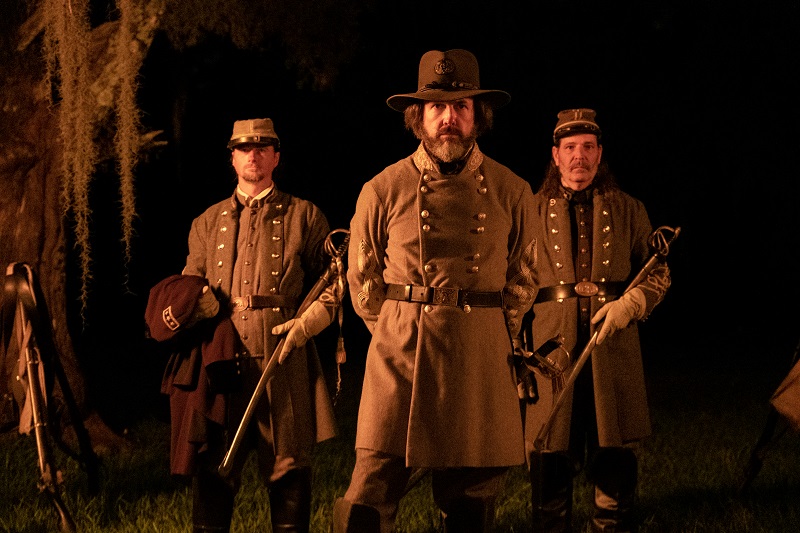
Those in the South have had over a century and a half of living in the past. That “way of life” has finally come into question, since the national discourse has centered around relations between people of color and the historical white ruling class. Bush and Renz have not made a political film, per se. It is firmly thrilling entertainment. Yet due to current events, the filmmakers’ brilliant work has drawn an unspoken parallel. It involves the struggle between those who cling to their racist past and call it “heritage,” and those who wish to see that past burned. How anyone can witness Antebellum and still believe that Confederate leaders should still have their names on our treasured military’s bases and statues saluting their traitorous efforts is beyond me.
Again, Renz and Bush did not write an overtly political film, but that is more because this has nothing to do with Republicans and Democrats. It never mentions the left or right or middle America in any form. This is a human issue, period. As painted by the rookie filmmakers, they have masterfully made an entire movement’s point without addressing it overtly. Another surprising element to come out of the Antebellum experience is inspiration to do more to help atone for past horrors and to discover new ways of helping forge a future that firmly embodies that age-old belief that all men and women are created equal. Those who do not see it that way, there is no place for you in 2020 America. For those who still believe that a Confederate flag does not embody systematic racism and terror on a people, Antebellum will play like a horror movie… and that’s OK.
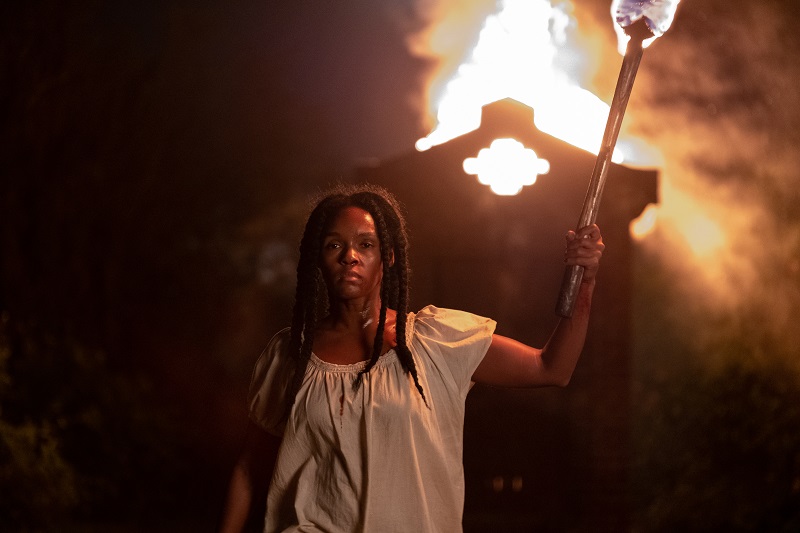
In many ways, the film firmly belongs in that milieu. This is a horrorshow, but for varied reasons that depend on who you are and where those family tree roots are laid. Antebellum does an extraordinary number of things impeccably well. But it’s greatest gift is exposing which road America should take in 2020. There is one group who would love to see our future borrow heavily from the past. For another group of souls, the only future that can exist is one that not only lets go of the past but severs all ties to those who are on the wrong side of history.
There are aspects of the film that can be lauded without revealing a single ounce of the plot. For example, the score by Roman GianArthur and Nate Wonder is astonishing. It establishes mood from the opening scene and its themes repeatedly reinforce that tone throughout. The way that Bush and Renz utilizes Wonder and GianArthur’s score is further proof that these two have an innate sense of the cinematic that this film has merely just scratched the surface of what they are capable of producing.
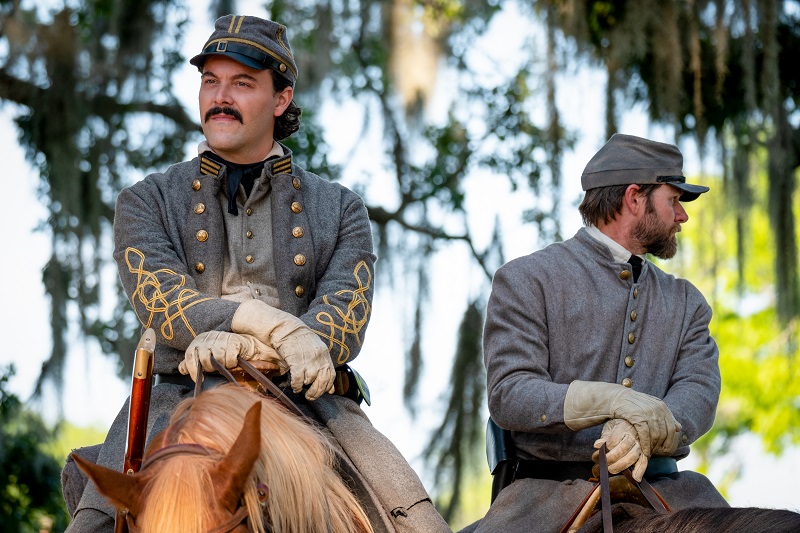
The same can be said of Pedro Luque’s cinematography. Given what Renz and Bush have fostered, plot-wise, Luque does something incredible. The landscapes are picturesque and drop-dead gorgeous, and yet there’s underlying filth to them that is firmly poisoned by the characters who inhabit this world. Now, the camera adores Monáe. But that last image of her that is what’s left with viewers to percolate in the days ahead is anything but beauty incarnate. What it is, is an explosive awakening that will stay with you forever.
Grade: A+

